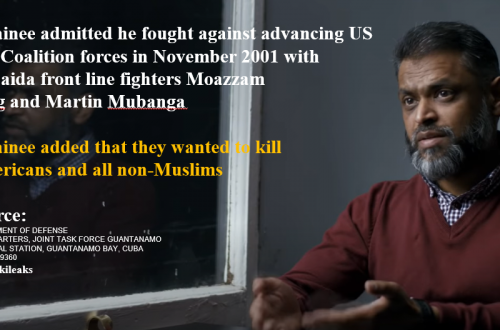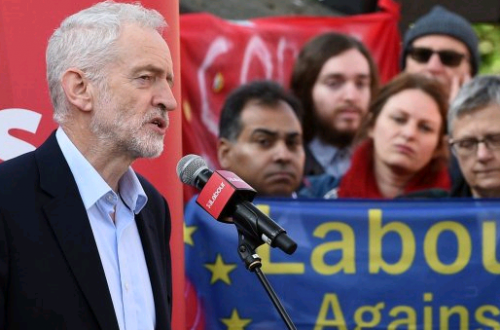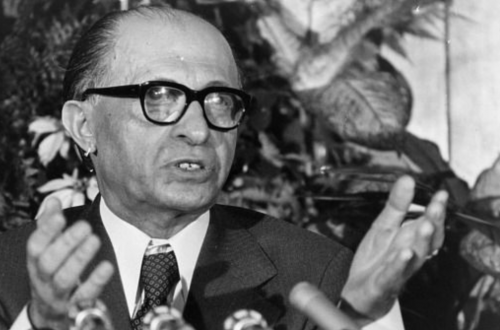This is a guest post by Pat Stack, who was the Chair the Disciplinary Committee of the SWP which cleared Martin Smith. Stack was the sole dissenter
UNDER NO CIRCUMSTANCES SHOULD THIS TEXT BE POSTED ON THE INTERNET. FOR MEMBERS OF THE SWP ONLY.
Since conference I have been contacted by a number of longstanding comrades to find out where I stand on things. Due to my position as chair of the DC I have tried to be very circumspect in how I reply, and obviously have not discussed the ins and outs of the case (and in fairness none of these comrades have asked me to).
Like everybody else I am sure I have observed the goings on since conference with feelings of alarm and dismay, and feel I cannot simply say nothing when comrades seek my view. In light of that I feel I should make clear my views to you/the CC at the present time.
My starting point is that I want the essentials of our politics to be maintained whilst loss of membership is minimised. I realise getting that balance right is going to prove very tricky to say the least. Anyway, here goes.
After the vote at conference on the DC report I felt there needed to be a real awareness on the part of our leadership of how narrow the vote was and what measures had to be taken to reflect the genuine concerns expressed by the minority.
I felt that to do that three steps needed to be taken.
The first was to acknowledge that many people were uneasy, to say the least, about the processes of the DC and to either set up a commission to review them or at the very least commit the CC/DC to look at the whole process and see if there were things we would like to change. (With that wonderful gift, the benefit of hindsight, there are a number of changes I would want to examine, especially for cases of this sort). I drew up most of the processes and have to admit that looking back some of them were far from ideal for this case.
I also felt (though you won’t agree, and it is too late to change it now) that in light of the closeness of the vote the CC should have accepted Joseph Choonara’s unity slate. I think it would have sent out a message that we were serious about healing wounds, and if it turned out that the ‘nuanced’ (to quote Alex) political differences were rather more than that, we could have had those debates in the open between now and next conference. Instead the CC seemed to be declaring war on the minority and, in my opinion, in the process were allowing people with very substantial differences to leap into the vanguard of those comrades who were troubled, unhappy and unsure.
Finally, I am truly puzzled that Comrade M is still playing a prominent role. Surely after the closeness of the vote there had to be a recognition that very many members were unsure of his behaviour and that (for a period of time at the very least) it would have been wise and appropriate to ask him to step away from all public activities and engagements. To not do so is to tell the large body of comrades who are unhappy or unsure, ‘we don’t care about your concerns, like it or lump it’ (defend or resign is what I believe some comrades were initially told). If for no other reason than putting the interests of the party first it seems to me Comrade M has to be asked/told to step away.
Looking to the immediate future I have real concerns about the case about to be brought against the ‘Facebook Four’. This is not to do with their guilt or otherwise, rather that things have moved on so rapidly that their offenses seem almost trivial compared to the bloggers and their very public allies.
I believe the CC have very wisely not rushed in to disciplining Richard Seymour/China Mieville etc, but if I were one of the four I would certainly question the fairness of being disciplined when those comrades aren’t. My own view was that it was always a tactical error to move against them before conference, and perhaps if we hadn’t we would have some wriggle room now. My real fear is their case will be the next big cause celebre to set the bloggers off once more and probably trigger resignations. I think a lot of comrades would like some respite from the filth that is out there (here I’m talking about non-party bloggers), but these expulsions will only give that filth fresh impetus. If there is any way for the CC to step back from this I feel they should take it. For the same reasons I am against taking disciplinary action against Seymour.
What about the longer term? Here I feel that true and calm leadership may prevent us losing a huge chunk of our young recruits, and with them demoralised older members.
Any influx of young members presents challenges that we have to be able to respond to. I was on a student committee that openly rebelled about the punk paper, carried out a policy of non co-operation with Paul Holborow (his ‘grow up’ contribution brought that memory flooding back) when the CC took Chris Harman off student work because of his stand on the paper. (As an aside It is worth noting that Chris, and indeed for a period Steve Jeffries, remained on the CC long after their differences became very far from ‘nuanced’).
We fought the CC over our attitude to the Afghan rebels, and were all over the place on the downturn, Women’s Voice, Flame etc. The party combined vigorous debate with great patience, and most of us ended up on the right side in these debates and two or three ended up on the CC with others being organisers and longstanding members.
We had a healthy scepticism and distrust of all authority, which was partly why we became revolutionaries in the first place, and we carried some of that bloody-mindedness into the party and directed it at our own leaders.
I think any large scale recruitment of young members will find both a distrust of leadership, and an impatience for it. Such attitudes present challenges, such as the leadership having to earn the trust of young members because they weren’t there for many of the battles and lessons that has earned that leadership the trust and respect of many older members.
Indeed, such scepticism and impatience are necessary elements if these members are to become the next generation of leaders. The alternative is to ‘leave the young people of 29 to the liberals’.
What, though, of the political differences; democratic centralism, feminism etc?
Never has the need for patient explanation been greater. Partly some of the difficulties have been of our own making. Identifying democratic centralism with one type of slate system, or one very messy Disputes Committee case is a grand folly of miseducation.
Nevertheless there is a real ‘throw the baby out with the bathwater’ tendency among some of the bloggers and some who put their views in the IB. I believe the genuine core of democratic centralism has to be defended, but I believe it has taken a hammering (particularly over the case). So let’s use the pages of the journal to have the argument over the next 12/24 months. Of course there is the pre conference period, but the downturn and Women’s Voice debates lasted at least two years, they were argued out in the ISJ, at Skegness etc, not just in the formal pre conference period. We have to learn that lesson and repeat it.
Similarly over feminism. This year’s women’s discussion was largely uncontroversial, but last year’s felt like a dialogue of the deaf. The young women cadre were attacked by the older women cadre who merely seemed to brush off their ‘Women’s Voice’ debate notes and repeat them in a condescending and haranguing style.
This will not do. If we are to patiently explain, then we must also listen. The new feminism emerged from the wasteland of ‘post feminism’. It emerged against the background of new laddism, an exploding internet porn industry, and dubious models of girl power and raunch culture. This background made many radical women refuse to use the term feminism in case they were seen to be man-hating humourless oddballs. This was not a progressive or left wing rejection of feminism.
Therefore to have a new generation of women calling themselves feminist is a good thing. In articulating itself it frequently does not look or sound like the feminism of the past, and can seem on the face of it to be completely compatible with revolutionary socialism.
Our essential difference with it, however, is that it cannot achieve genuine women’s liberation. That has to be a serious debate, taking on the feminism of today, not that of yesterday (whatever the core similarities between them). It needs to be done in a comradely and serious way, again using the pages of the journal to invite all-comers as we seek to clarify.
We certainly have to get away from treating it as a nasty problem to be eradicated.
Finally, I think the leadership needs to ‘take a chill pill’ over social media. It seems alien to me, but perfectly normal to my nieces and nephews, that the pages of Facebook are used to share almost everything bar the darkest secrets. To them it’s as natural as it was for us to meet a bunch of people in a pub (or at a dinner party for the more sophisticated) and give vent to all our frustrations and disenchantments.
At conference an older comrade said to me we’ve got to ‘stop all this Facebook stuff’ I told him that if the ruling class had understood the internet before it was too late they would have seized and controlled it. If they couldn’t we sure as hell can’t and neither should we want to.
I feel this attitude was typified by the majority of the CC’s response to the internet debate last year. I remarked to somebody that the leadership sounded like aging CP’ersin the late 50s and early 60s denouncing Rock and Roll as an evil expression of American capitalism.
The times they have a changed. If we want young comrades to take us seriously, we need to seriously listen to them about this stuff, instead of panicking about what a seriously run website might do to the review, the journal or even the paper; we have to instead ask is it serious not to have a well run website that is absolutely central to our political/organisational priorities.
My point is that in all the ‘patient explaining’, and ‘politically educating’ we should keep at the forefront of our minds that famous maxim of Lenin’s: ‘Who teaches the teachers?’.
As I say, I have remained as quiet as possible throughout this whole process (though I know some would have liked me to be one speech quieter than I was), but I think we are now fighting for the party’s life and to say nothing is no longer possible.
Pat Stack


